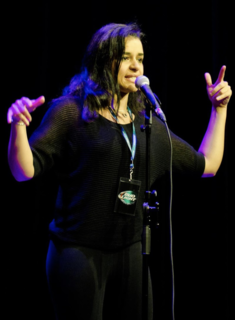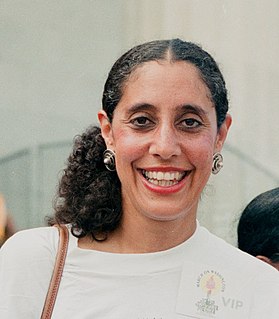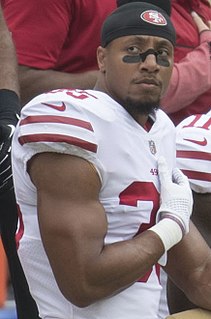A Quote by Kehinde Wiley
In a sense, we are all victims of the misogyny and racism that exist in the world, no matter what our gender or race happens to be.
Related Quotes
Critical Race Theory offers of discrimination frameworks as ways of understanding and eradicating racism. The focus on "discrimination" as the way to understand racism in the US has meant that racism is considered a question of discriminatory intentions - whether or not somebody intentionally left someone out or did something harmful because of their biased feelings about a person's race. This focus on individual racists with bad ideas hides the reality that racism exists wherever conditions of racialized maldistribution exist.
Hip-hop is contributing to American society's misogyny and racism, hyper-sexuality anti-Black representations. Hip-Hop isn't setting the standard for misogyny. No one reduces the presidency to misogyny, although we've had misogynistic presidents. No one reduces our government to being solely homophobic, although we have a government with a don't ask, don't tell policy for gays and lesbians in the military.
Of course, intersectionality theory is a confused muddle. It fights racism and sexism by classifying everyone according to race and sex. It views race and gender privilege as the root of all evil, while ignoring the role played by dogmatic ideologies held by all genders. And it is unfalsifiable - to its adherents, criticism and rejection of the theory actually demonstrate its truth, by showing how deeply we all have internalized our oppression.
The thing we need to work on as a country is our educational system. To me, that is something that our generation needs to be focused on. To make sure that for our next generation, every child - no matter what background, no matter what ethnicity, no matter whether they're whatever gender - that they are all educated to have real equal opportunity. That's number one for me. But I have no question that if it's not our generation that will make sure that that happens that it will be our children's generation.
It's only in the finer points that it gets complicated and contentious, the inability to realize that no matter what our religion or gender or race or geographic background, we all have about 98 percent in common with each other.... For whatever reason, we like to focus on the 2 percent that's different, and most of the conflict in the world comes from that.







































